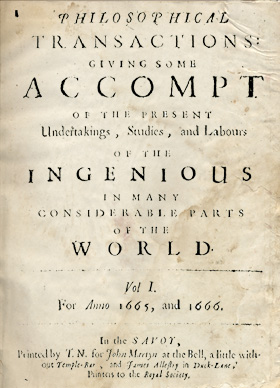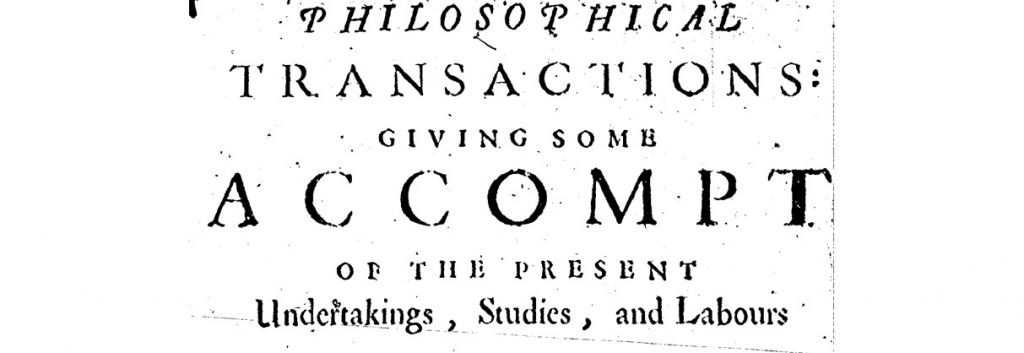The world’s oldest continuously published journal, Philosophical Transactions of the Royal Society of London (RSL), celebrates its 350th anniversary on 6 March 2015.
Academic journals are the cornerstone of science research. They serve as showcases, forums where researchers present their discoveries to the scientific community so they can be scrutinized, criticized and confirmed or rejected. As Henry Oldenburg, Secretary of the RSL, wrote in his introduction to Philosophical Transactions’ first edition, the aim of scientific publications is to give researchers a venue to “…invited and encouraged to search, try, and find out new things, impart their knowledge to one another, and contribute what they can to the Grand design of improving natural knowledge, and perfecting all Philosophical Arts, and Sciences.”
Landmark papers that have been published in all of the Royal Society journals include:
- The gruesome account of an early blood transfusion (1666)
- Sir Isaac Newton’s landmark paper on the nature of light and colour (1672)
- Benjamin Franklin’s account of flying a kite in a storm to identify the electrical nature of lightning – the Philadelphia Experiment (1752)
- Han’s Sloane’s account of inoculation with small pox (1755)
- A scientific study of a young Mozart confirming him as a musical child genius (1770)
- The discovery of a comet by the first recognized female scientist, Caroline Herschel (1794)
- Maxwell’s discovery of the electromagnetic properties of light (1865)
- The paper that proved Einstein right (1920)
- Stephen Hawking’s early writing on black holes (1970)
However, one of the greatest discoveries in the History of the RSL was in 1945, for in that year it realized the existence of women. Physicist Kathleen Lonsdale and biochemist Majorie Stephenson were the first to be elected “fellows of the Royal Society”. Another major achievement of the world’s longest-running scientific journal was to replace Latin as the science lingua franca in favor of English.
As part of the anniversary celebrations, the Royal Society is publishing two special journal issues in which experts revisit landmark papers published in Philosophical Transactions to explore how they have impacted science across the globe. The special issue of Philosophical Transactions A covers papers in the physical, mathematical and engineering sciences, whereas the special issue of Philosophical Transactions B covers life sciences. Furthermore, all access to the Royal Society journals content is free until the end of March 2015.

Nevertheless, it is also true that academic journals have not been exempt from controversy. Two years ago, Nobel Prize-winner Randy Schekman began a stormy debate when he announced his boycott to prestigious closed-access journals such as Nature, Cell and Science. Schekman, amongst other criticism, condemned these journals for accepting papers that will be often cited, increasing the prestige of the journal, rather than the articles demonstrating important results.
Anyway, self-served and sensationalist or accurate and impartial, the contribution of academic journals to scientific knowledge is undeniable.
As Thomas Huxley, Fellow of the RSL, wrote in 1870: “If all the books in the world, except the Philosophical Transactions, were to be destroyed, it is safe to say that the foundations of physical science would remain unshaken, and that the vast intellectual progress of the last two centuries would be largely, though incompletely, recorded.”





